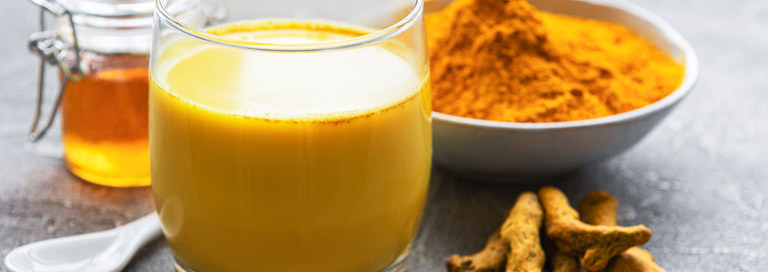The United States is in the middle of an Alzheimer’s epidemic. In the next 20 years or so, this devastating, memory-erasing disease is predicted to affect 1 in 4 Americans.
But, do you know what country has one of the lowest rates of Alzheimer’s in the world?
India – has a prevalence rate of less than 0.3% in some remote regions.1
A key reason why is that the Indian diet relies heavily on an ancient root that helps their brains stay sharp and agile. It can even prevent or lessen the effects of Alzheimer’s and dementia, naturally.
Let me explain how…
Our brains produce a compound called acetylcholine. This chemical messenger is vital to memory, judgment, and clarity of thought.
However, patients with dementia and Alzheimer’s produce an enzyme called acetylcholinesterase (AChE). This enzyme breaks down acetylcholine, leading to many cognitive problems.
But there is a natural compound that stops the breakdown of acetylcholine and helps restore proper brain function.
I’m talking about turmeric.
Turmeric root is the main ingredient in Indian curry. Its components are curcuminoids, with the main one being curcumin.
And studies show that this spice is a powerful AChE inhibitor.2
In a recent in vitro study, researchers determined curcumin has a pronounced effect on stopping the breakdown of acetylcholine.3
A second animal study showed that turmeric can reduce the buildup of tau protein by 80%.4
These tau proteins clump together and gum up your brain, causing cell destruction, brain tissue loss, memory loss, confusion, and, ultimately, death.
And a human study from researchers at UCLA found curcumin can even help macrophages clear the amyloid plaques found in patients with Alzheimer’s disease. Macrophages are important because they allow you to fight foreign proteins and then effectively clear them away.
Researchers took blood from nine volunteers – six
Alzheimer’s patients and three healthy people – and treated some of the macrophages with curcumin. Then, they introduced beta-amyloid plaques into the blood.The macrophages treated with curcumin showed an improved uptake and ingestion of the plaques, proving that curcumin helps the immune system clear the amyloid protein.5
Other studies have shown that curcumin can cross the blood-brain barrier and binds to plaques, destabilizing beta-amyloid plaques.6,7
Protect Your Brain Cells With Masala Haldi Doodh
I like adding curcumin to a lot of different foods, including curry.
But, one of the best ways to enjoy curcumin is with a classic Indian beverage I discovered when I spent time in the country. It’s called masala haldi doodh and this traditional recipe makes two servings.
Ingredients:
- 2 ½ cups coconut milk
- 1 tsp turmeric root powder
- 4 green cardamom pods, crushed
- ½ inch piece of fresh ginger, sliced thinly
- 6 whole black peppercorns
- 1 cinnamon stick
- 1 Tbsp raw honey
Directions:
- Add milk to a small pot and heat over medium heat until hot, but not boiling.
- Add turmeric powder and stir, then add cardamom, ginger, peppercorns, and cinnamon.
- Stir, then add honey and bring to a simmer for 5 minutes.
- Remove from heat and cover the pot. Let rest for another 5 minutes. Strain into 2 cups and serve.
Of course, turmeric is also available as a supplement. I recommend taking 2,000 mg of curcumin daily. Look for a brand that also contains piperine, a black pepper extract that supercharges curcumin’s absorbency.
I also recommend you look for a curcumin supplement that contains at least 100 mg of galangal, another Indian root with proven protective memory properties.8
To Your Good Health,

Al Sears, MD, CNS
References:
1. Chandra V, et al. “Incidence of Alzheimer’s disease in a rural community in India.” Neurology. September 25, 2001
2. Tello-Franco V, et al. “Experimental and computational studies on the inhibition of acetylcholinesterase by curcumin and some of its derivatives.” Curr Comput Aided Drug Des. 2013 Jun;9(2):289-98.
3. Manap A, et al. “Synergistic effects of curcumin and piperine as potent acetylcholine and amyloidogenic inhibitors with significant neuroprotective activity in SH-SY5Y cells via computational molecular modeling and in vitro assay.” Front Aging Neurosci. 2019; 11: 206.
4. Shytle R, et al. “Optimized turmeric extract reduces β-Amyloid and phosphorylated Tau protein burden in Alzheimer’s transgenic mice.” Curr Alzheimer Res. 2012 May;9(4):500-6.
5. Mishra S, and Palanivelu K. “The effect of curcumin (turmeric) on Alzheimer’s disease: An overview.” Ann Indian Acad Neurol. 2008;11(1): 13-19.
6. Ono K, et al. “Curcumin has potent anti-amyloidogenic effects for Alzheimer’s beta fibrils in vitro.” Neurosci Res. 2004;75:742–50.
7. Mishra S, and Palanivelu K. “The effect of curcumin (turmeric) on Alzheimer’s disease: An overview.” Ann Indian Acad Neurol. 2008;11(1): 13–19.
8. Guo, Ava J.Y. “Galangin, a flavonol derived from Rhizoma Alpiniae Officinarum, inhibits acetylcholinesterase activity in vitro.” Chemico-Biological Interactions. 187 (2010) 246–248.

